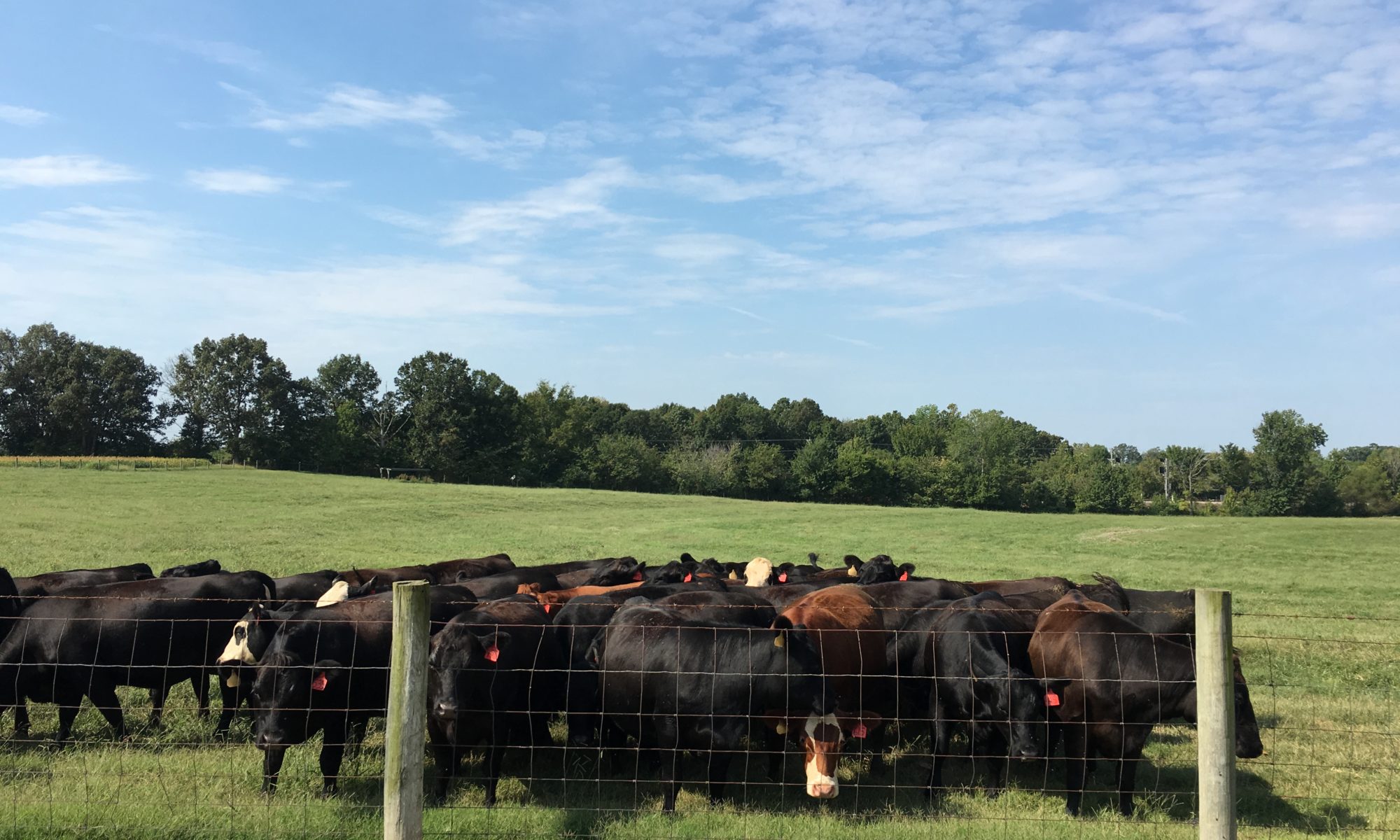

Dr. Andrew Griffith
Assistant Professor
Department of Agricultural and Resource Economics
P: 865-974-7480
As the cattle market heads into November, it is clear many cattle producers feel like they have a burnt brisket, because they did not receive a price as high for their calves and feeder cattle as they once anticipated. Looking back at the futures market, the November contract peaked near $172 and was trading near $153 at the time of this writing. This simply means that 800 pound steers to be sold in November lost $150 per head in value from their peak price if price risk management was not utilized. However, hitting the top of the market is like roping the wind in that it is nearly impossible using price risk management or when physically selling cattle. A person may occasionally price cattle at the peak, but it is about as common as unicorns jumping over a rainbow.
Given that the brisket is already burnt, it cannot hurt to burn it a little more. Though roping the wind is nearly impossible, one can use the wind to their advantage when it is blowing the correct direction. So here is where burnt brisket and roping the wind meet. Cattle producers had a wind going in their direction for many months as it relates to cattle price expectations. For instance, the November feeder cattle futures contract traded above $160 from the middle of June through September 10th. That means the market traded above $160 for nearly three months. This positive wind offered producers the opportunity to price cattle through the futures market or Livestock Risk Protection insurance for at least $50 more per head than what they were worth at the time of this writing. The thought that a producer could have done something to manage this price risk can burn the brisket and the biscuit.
That is enough throwing of salt on the wound. What will producers do to change how they manage their operation and specifically price risk management now that they have gone through a period in which they expected higher prices? In my more than nine years of experience, most producers will not change anything. They will however continue to complain about prices going down. Alternatively, there will be a few people that actively begin learning how to use these tools and begin managing price risk. Those producers will find out that sometimes price risk management pays out and other times it is simply an expense.
The fact that it is an expense at times is why many people choose not to use any type of price risk management. However, I am going to provide how I view price risk management and utilize it to my benefit. First, it is not always appropriate to use price risk management of any sort. For instance, it makes no sense to lock in a price that will result in a loss to the operation. If a person locks in a price that results in a loss then there is little to no hope of coming out on the positive end. A loss of hope results in bigger problems. Second, producers should have a profit goal in mind and when the market offers an opportunity to reach that goal through price risk management then take it. How can a person go wrong making the amount of money they originally set out to make? This does not mean the price has to be locked in, but a floor price should be set. Third, know and understand that managing price risk has a cost and consider it a cost of doing business. If this does not make sense then go back to the first thought. Lastly, I am a resource to help educate on this topic so use the resources available.
This article is not meant to push people into the use of price risk management, but it is meant to say stop complaining about poor price results if nothing is being managed. Complaining will not achieve higher prices. At times there is nothing a person can do to be profitable, but doing nothing is also a way to achieve complacency. The encouragement is to start evaluating opportunities to enhance the price received, which may take the form of using price risk management or simply marketing cattle differently. Nobody wants to be tasked with roping the wind, because the brisket will be burnt before the chore is accomplished.
